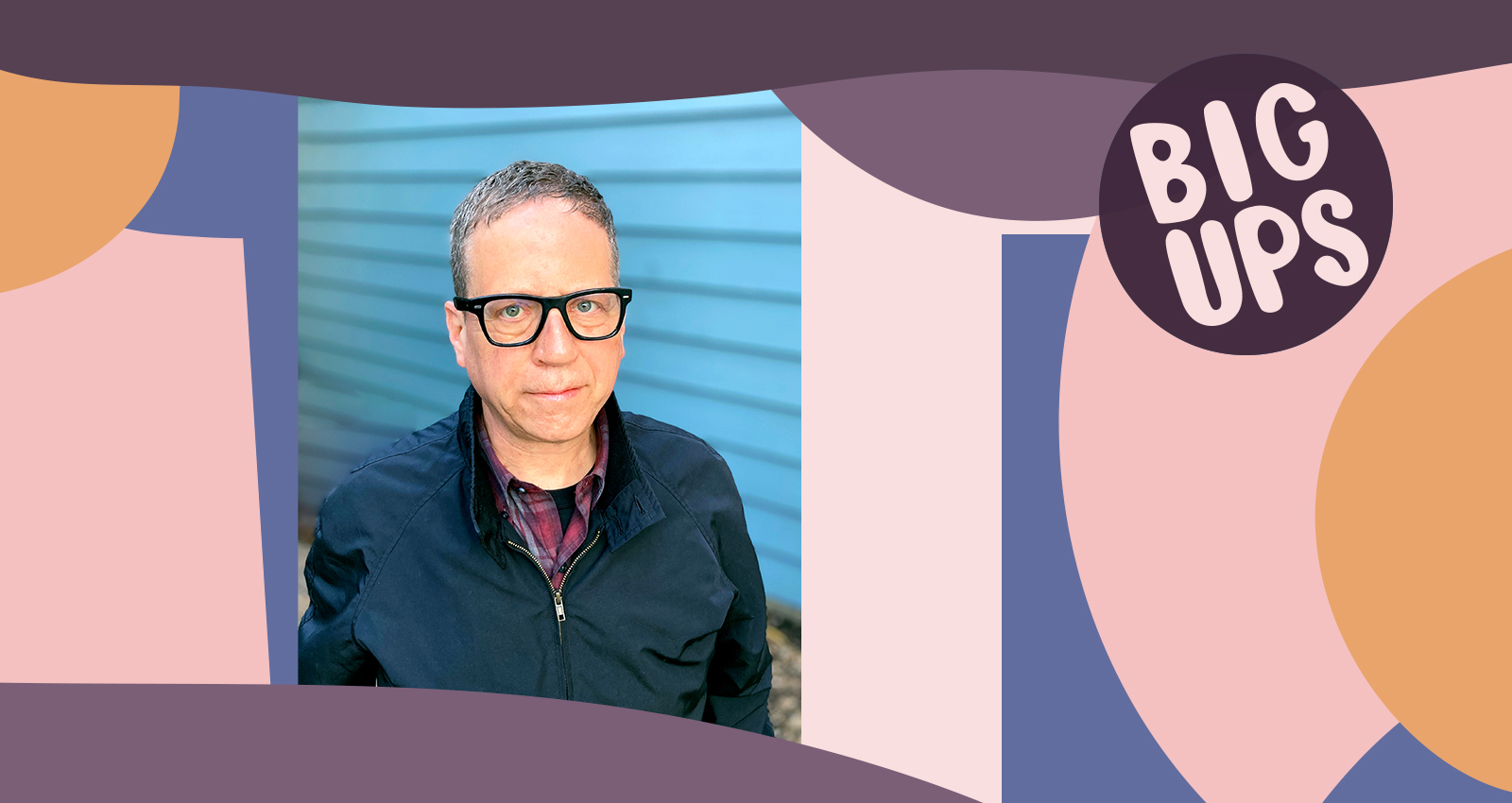
When Bruce Adams sold his share of the label kranky, which he co-founded with Joel Leoschke in 1993, his wife almost immediately started suggesting he write a book about his experiences as a deep music industry insider at the crossroads of the ‘90s sonic landscape in Chicago. But for Adams, things were still too fresh. Over the course of time, however, it became clear that the history needed to be documented and that it should be documented by someone who knew the scene from the inside out. Given that kranky was on the periphery of it, the value and importance of the bands on the label was particularly important to document—especially Labradford, who launched the imprint. “I feel like their story and their importance has not been underlined enough,” Adams says. The result is You’re With Stupid: kranky, Chicago, and the Reinvention of Indie Music, which was released earlier this month.
The springboard for kranky was that it had to be different. So much music being made during the ‘90s indie rock boom was getting shoveled en masse into the garbage bins at places like the Cargo Records warehouse, where Adams and Leoschke worked every day. They saw things happening that they were determined not to duplicate, a commitment that led to the “kranky kommandments,” a list of things to not do after paying artists royalties in a timely manner. They had a pretty good idea of what stores were interested in and where to best spend their money; it wasn’t necessarily what you put out, but that you put it out with confidence, and maybe a little bit of an attitude; that you portray yourselves as being something different and interesting and put music into the hands of other people interested in that stuff and spread the word. Adams and Leoschke were both willing to take their time, work two jobs, and avoid any spending that wouldn’t advance the label. They were also “fortunate to work with artists who understood and trusted the label and who were trustworthy,” Adams acknowledges. “The musicians were dedicated to their craft and dedicated to doing it in a workable, sustainable way.”
In a lot of ways, Adams’ book is a story about both a Chicago and a world that doesn’t exist anymore. “The rate at which any given release falls out of the public view now is extremely depressing,” Adams says. “I was still receiving reviews of the first Labradford record six months after it came out: people had fanzines, small-run magazines—it would take a while for them all to come out. There was a message-in-a-bottle feeling of responses trickling in from all over the world over the course of time.” Now, due to the cost of living and wage stagnation, Adams says that “opportunities for people to fund or motivate their own production are not what they used to be, and everyone’s got a lot of pressure in their day-to-day lives.” Additionally, the endless series of distractions via social media and smartphone technology create a situation in which we are perniciously distracted by a trivial, unsatisfying, but constant scroll of content. “Even in the best of times, for me personally, the greatest luxury I can have is sitting down to read a book or magazine or listen to music, and it seems like the challenge to write yourself away from all of those things is more difficult than it’s ever been,” Adams says. Fortunately, for all of us, he still managed to do it. So, in addition to there being hope for all of us to do the same, we can also now have a first-hand account of a fascinating time in music history to motivate us into some truly focused, immersive, offline activity.
Beginning with critical releases from the kranky catalog and spanning out to more contemporary sounds he has been enjoying, here are just a few of his favorite things on Bandcamp.
Labradford
“Lake Speed”


“Obviously, I started with Labradford. The significance of this to me is that it was the second record that Bobby Donne was on with the band, and I felt at the time that it was a big jump for them. It just revealed some things that the band would expand on in the rest of their records, and it was a push forward for them: they brought in synthesizers, some drum textures, and then they mixed that with the sort of wide-scope sound they had. I think of the Virginia background, ‘the High and Lonesome Sound,’ it had potential, I thought, and was the first indication that the band was going to expand and become more than just a drone band.”
Philosopher’s Stone
“Where Regrets End”



Compact Disc (CD)

“I put Philosopher’s Stone in there because I think it’s a very underrated record, I felt that almost the minute we put it out. It’s a very intense record, and what’s interesting to me about it is that so many of the sounds there are guitar-originated, but don’t necessarily sound like it. And then Gareth [Mitchell] sings on it with this really unique voice [reminiscent of] Scott Walker. To me, it’s a very interesting record when you compare it to everything else on the label. Maybe only in the last five or six years, there are some other artists on the label who have done something in that vein—I can track certain notions they have back to Philosopher’s Stone. So, that’s why I picked it: it’s always been overlooked, and it’s always been one of my favorite records on the label. It was one of my favorite records to work, and I once spent a very enjoyable afternoon with Gareth walking around London; at the time, he was a big perambulator, and at the time in London, a good cup of coffee was a precious thing. He sent me to a little French coffee shop in Chelsea! I have a very good memory of that.
“It was an interesting trip to London, because I stayed with a friend in East London—she worked at Southern Records—and we went out for an evening of drinking as one does with English people and ended up at a private Turkish men’s snooker club that was an off-license private club, so that people could go there drinking after 11pm. And there’s fucking Jim O’Rourke, smoking a cigarette! It was hilarious. I go back with Jim; at the time, Joel and I were giving it ‘the old college try’ to get some sort of Jim O’Rourke recording on the label—he was a pal—so there he is London: smoking a cigarette, drinking a beer, surrounded by a bunch of Turkish men playing snooker. That was a fun experience.”
Magnog
“A Moments Seam”
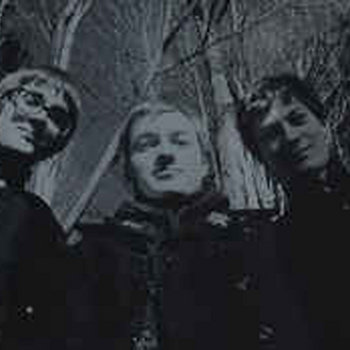

Compact Disc (CD)
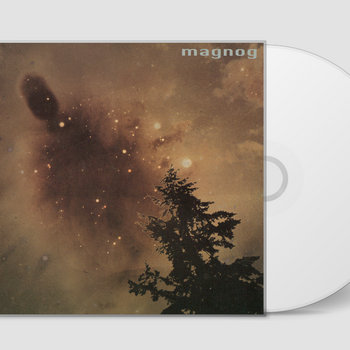
“Magnog! There is a great ‘what-if’ story. What if they hadn’t broken up? Nineteen year-olds invited to the jazz festival, opening for Pearl Jam. They were just a phenomenal live band; I never got to see them play, but Joel got to see them play Seattle. They played a show opening for Jessamine, and instead of one band stopping and the other band being off stage, they sort of merged seamlessly into one another: Magnog played for a while, and then some people from Jessamine came up and played with them and then eventually, Magnog left the stage, and it was all Jessamine. They were just phenomenal, and the amazing thing about them was that they were this band that was obviously harkening back to certain influences—most of them German—they had a propensity to play long or more drawn-out stuff, but it was never self-indulgent or without discipline, and it was always intensely rhythmic. If there’s a tragic band on the label, Magnog are it, because they really could have gone on to do amazing things and become much more prominent than they were, and it just didn’t work out that way. There were some mental health issues and some substance abuse issues, and it just derailed them, and it’s just a sad story.”
Low
“Starfire”


“I put Low on there, because I’ve been thinking about Mimi [Parker] a lot. When they were here in April, she told my wife and I about her ovarian cancer, and we were not aware of that. ‘Starfire’ is a wonderful song, because it’s about a guy in Duluth who had a pirate radio station. The big line in that one: ‘I want a station of my own.’ He was the traveling nanny for their daughter, Hollis, and Hollis was but a tyke, and he would take care of her while the band did band stuff at night, and it’s one of my favorite Low songs.”
Bowery Electric
“Without Stopping”
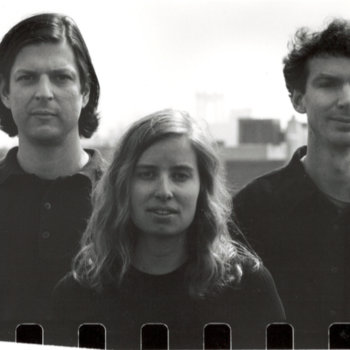

“Fantastic record. I meet a lot of people who are Bowery Electric fans. It seems like they really struck a nerve with a lot of people who were maybe not necessarily kranky fans, or not big fans of the rest of the bands. Beat is an incredible record, because they really managed to use sort of the rhythmic elements of a lot of electronic dance music in what they were doing without coming off as cliché or cloying. It was just really well-integrated and very powerful live. Joel reissued this record on vinyl a couple years ago. It’s a record I pull out a lot, and it also demonstrates that the label aesthetic did not work on a completely rhythm-less, pure drone, pure ambient sense. I always tell people there’s a spectrum with Jessamine and Bowery Electric on one side, who are very much focused on rhythm, then it moves over to say, Stars of the Lid, who are completely drum-less. I think the first Stars of the Lid record said something in the liner notes about ‘without the tedious presence of drums or vocals.’ So, that’s why I put that in there: they were a foundational band on the label, really aesthetically focused on what they were doing, and just great in every aspect of what they were doing.”
Kevin Richard Martin
“Nishinari”


“And then I come over to some non-kranky Bandcamp stuff. I’ve been enjoying a lot of Kevin Martin. I first met him at a distance, because I wrote an article for Your Flesh on his band God, which is like a maximalist noise rock, jazz-fuck-it-all fusion band, and then he did us a solid by putting some bands on a compilation he did for Virgin. I don’t know if this guy ever sleeps, because he’s been pumping out these really amazing (for lack of a better word) ambient records, but they are incredibly deep and menacing, with some harsh overtones and undertones, and he just keeps doing record after record and digital releases that are just amazing. Back in the day, he tried to invent a genre called ‘isolationism,’ which was the name of the first Virgin comp he made. In the liner notes, there’s just this wonderful jeremiad against what he called ‘silicon New Age,’ and it was just right on the money then, and I especially feel it and get vibes and appreciate it now, given the pastel revival that’s going on. So, his solo stuff, the last two records—this one and Subzero—are just really amazing, so I wanted to put that in here: a tip of the hat to this guy who is making really interesting music, who is a really keen observer of what’s going on, and a guy who is just so productive, I don’t know how he does it. He must put himself in some hyperbolic time chamber to produce tracks!”
Naujawanan Baidar
“Khedmat Be Khalq”

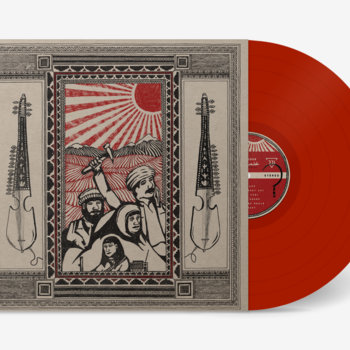
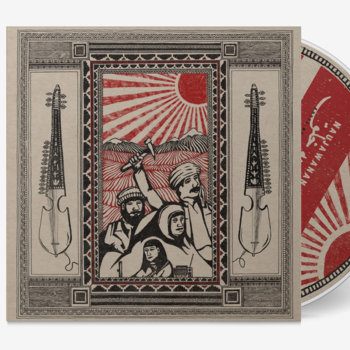
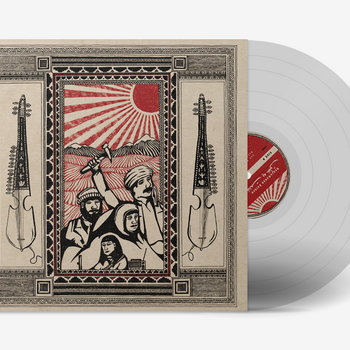
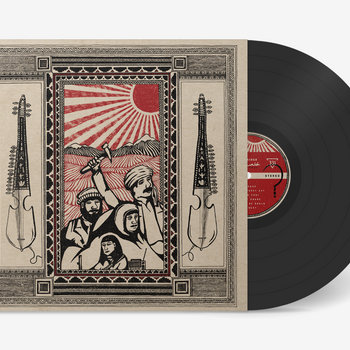

Vinyl LP, Compact Disc (CD)




“Afghan street jams! You know, I listen to a lot of abstract, experimental music or whatever, but the music on this recording in particular is so fucking memorable. I’ll walk around going [sings melody] in my mind, in a way that I don’t do with a lot of other music I listen to. So much psychedelic music now really sort of hinges around the appropriation of different strains of near Eastern and sub-continental music […] but this music is done by someone who has a family history and background with the music. Especially, the bass guitar in this is just monstrous, the rhythms are incredible, pounding…it’s just the most amazing, appealing stuff I’ve heard in a long time. I really like it and I listen to it a lot and I would like to talk to that guy someday, because the range of things he is doing on his label is really amazing, too. It made a big impression on me.”
Lewsberg
“Getting Closer”
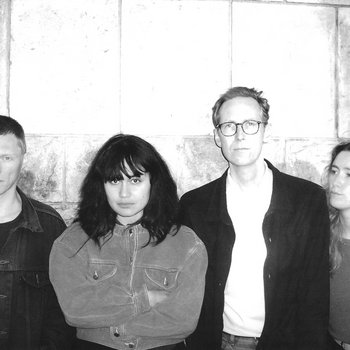
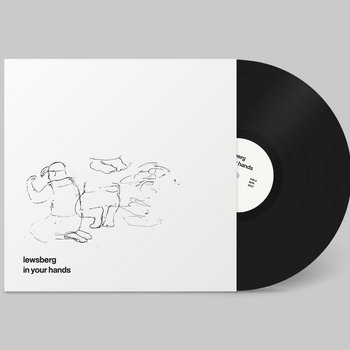

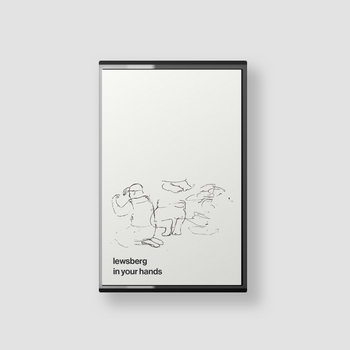

Vinyl LP, Compact Disc (CD), Cassette



“Lewsberg also made an impression on me, but in a different way. The first time I heard Lewsberg, I thought, ‘Oh, this is just another band taking the quiet side of the Velvet Underground and running with it,’ which is a very reductionist take on what they do. But there was something about it that just caught me. And then I kept listening to this track from their most recent EP, and it just has this really nice hook in it, and it gets me. So, I really enjoy what they are doing, it reminds me of the first time I heard Young Marble Giants and I was like, ‘How can music this simple be pop music or be so effective?’ But it is. So, I listen to them a lot; I really like what they’ve been up to.”
Claire Cronin
“I Could Not Let Blood”
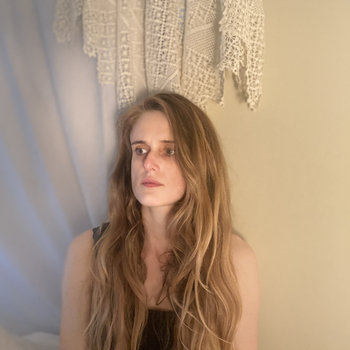



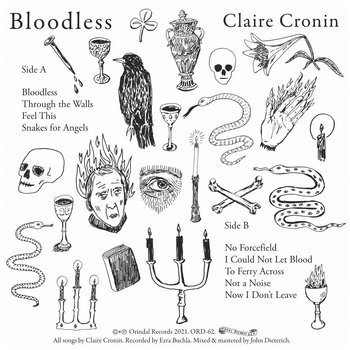

Vinyl LP




“And then I thought I would end up with a little salute to Orindal, which is a Chicago label. The Claire Cronin record. I know that the female singer-songwriter is the predominant vein of your indie rocks right now. What I love about her music is the stark nature of it, the slightly scary side to it. She reminds me a little bit of John Jacob Niles, who was this musicologist and singer of the late ‘50s that sort of pre-dated the folk revival. He and she very much bring out the isolated, hermetic strain of Anglo-American traditional folk music of people in shacks on islands in the North Sea who probably killed somebody in their family, you know? It’s very effective for me, very well-conceived and well-executed. The two hardest forms of music, to my mind, to play and record well are very loud music and very quiet music: there’s nowhere to hide. You can fudge so much in the middle. Her stuff really stands out. I first heard of her, because Orindal put out a video compilation of all of their bands in December of last year where all of their singer-songwriters did one song apiece, and she did one song where she is in this setting in Los Angeles that looked like an old hotel or something, and it just blew my mind. It was very timeless, I think, would be the word. She’s written some ghost stories and things like that, too. I just really enjoyed her record a lot, and frankly, it’s a kind of music that usually doesn’t do much for me, so it really sticks out. Her stuff is informed by the tradition of folk, but it’s very idiosyncratic, as well.”







